
Justyna Belkevic is a User Experience (UX) designer with GlaxoSmithKline. She helps deliver multi-million euro new-to-market products and projects to healthcare professionals all over the world. UX brings her deep fulfilment and joy. But it wasn’t always so.
She started out her career “as a follower;” pursuing a career in banking that she believed to be the only pathway to success. Her failure to find happiness in her profession marked a critical juncture – and a reassessment of what it means to succeed. She found her “ikigai” after much soul-searching, facing up to a fear of change, and saying yes to every new opportunity. CEMS Magazine sat down with her to hear her story.
Justyna, you started out with a certain idea of what success looked like. Could you tell us about that?
I graduated from LSE which is a school that convenes clever, ambitious students and I think there was a common understanding among my cohort that being successful meant getting into banking or into consultancy in financial services. When you are young and you don’t know what else is out there, there’s a pressure to conform and follow the crowd. Then there’s the response you get from other people – from friends, peers, faculty, family – to choices that might not seem to fit the trajectory. Finance was cool, statistical analysis was cool, but taking an elective in psychology might be construed as “weird.” Maybe it’s a perception, but I felt that if everyone else’s dream of success was this one career path, then it must be my dream as well. It’s tough, when you are young, to buck the trend and to choose for yourself. And it’s easy to become a “follower.”
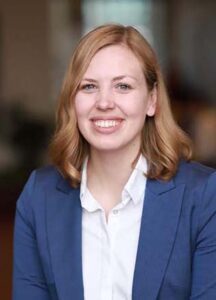
Yet pursuing a Masters in Management and focusing on business and finance were part of the choices you proactively made for your own education? Surely it’s natural to assume you would want a career that maps to these choices?
I chose to study management because I wanted to learn how to find an outlet for my untapped creativity. Coming from a background in politics, I believed that in business, the rules are more flexible. Maybe it’s also the case that you aren’t encouraged to experiment enough in your education and career. A lot of people will tell you to choose your degree very carefully because it will accelerate your career and set you up for early success in your chosen field. But I think it’s a good thing experiment and to do it young, because honestly: when if not now? In my experience, as it turned out, I had to try things out to discover if they suited me, or not. There’s this expression that I’ve heard a lot: winners don’t quit. But I actually think winners do quit; I think they quit a lot and they fail a lot. I think winning is about persevering through adversity for sure, but it’s also about knowing when it’s time to do something different – something that truly brings them happiness and fulfilment.
You say winners fail a lot. How did you experience failure in your early career and what impact did it have on you?
I had terrific experiences as an intern and getting into roles at Mastercard and Prudential. The latter was really cool, working as a financial crime investigator. I felt like a secret agent, I loved my team and my manager was amazing. But in terms of what I was doing, I was failing to feel the fulfilment I’d been promised at university. Because of this, I volunteered to do a side-project building a website for financial crime investigators and it was a Eureka moment. Everything about the work from the creativity to problem-solving, from psychology to resource management was thrilling. I didn’t yet know about the field of User Experience and design, but I understood that a door had opened. It wasn’t immediate though. I took the decision to move to Salesforce, but into a pre-sales, analyst role. At the same time, I was researching everything I could to figure out what kind of profession mapped to the things I had begun to feel passionate about.
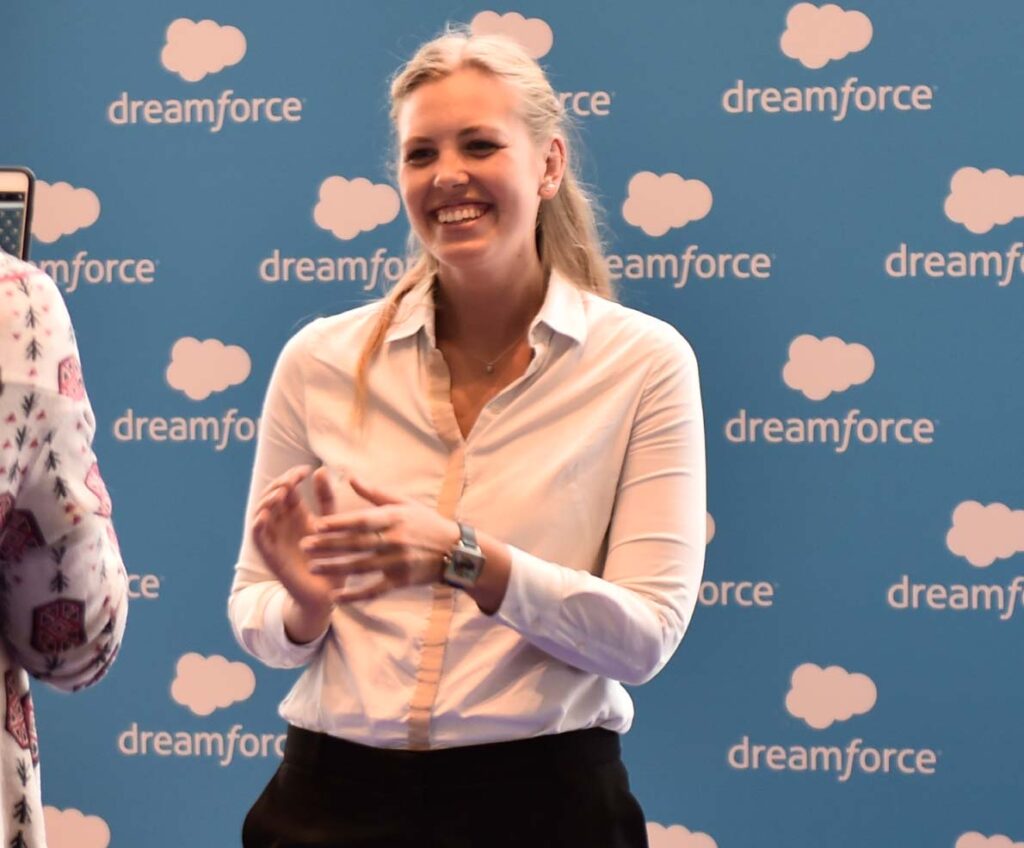
So you made the transition to Salesforce, but not yet into a role that really was the right fit?
Yes, and all kudos to Salesforce because they really have a dynamic, positive culture. They look for the potential of the person and there’s a huge amount of support for you from within if you need to shift or transition into a different area or role.
But you must have felt some trepidation, starting out in a new organisation yet still unsure of your trajectory?
Personally, I didn’t feel it was that inherently scary because nothing felt scarier than being in a career that didn’t fulfil me. By the same token, as I began to discover that my true calling was in design, there was a realisation that making this kind of transition would take time.
I would be entering a space I hadn’t trained for and competing for work with people who had a dedicated background in something totally new for me. No one was waiting for me with open arms. So I got strategic about it. I spent a lot of time upskilling myself, doing courses on weekends, reading books, connecting to people and finding a mentor. It was tough for quite some time, but also so exciting to get closer to my goal.
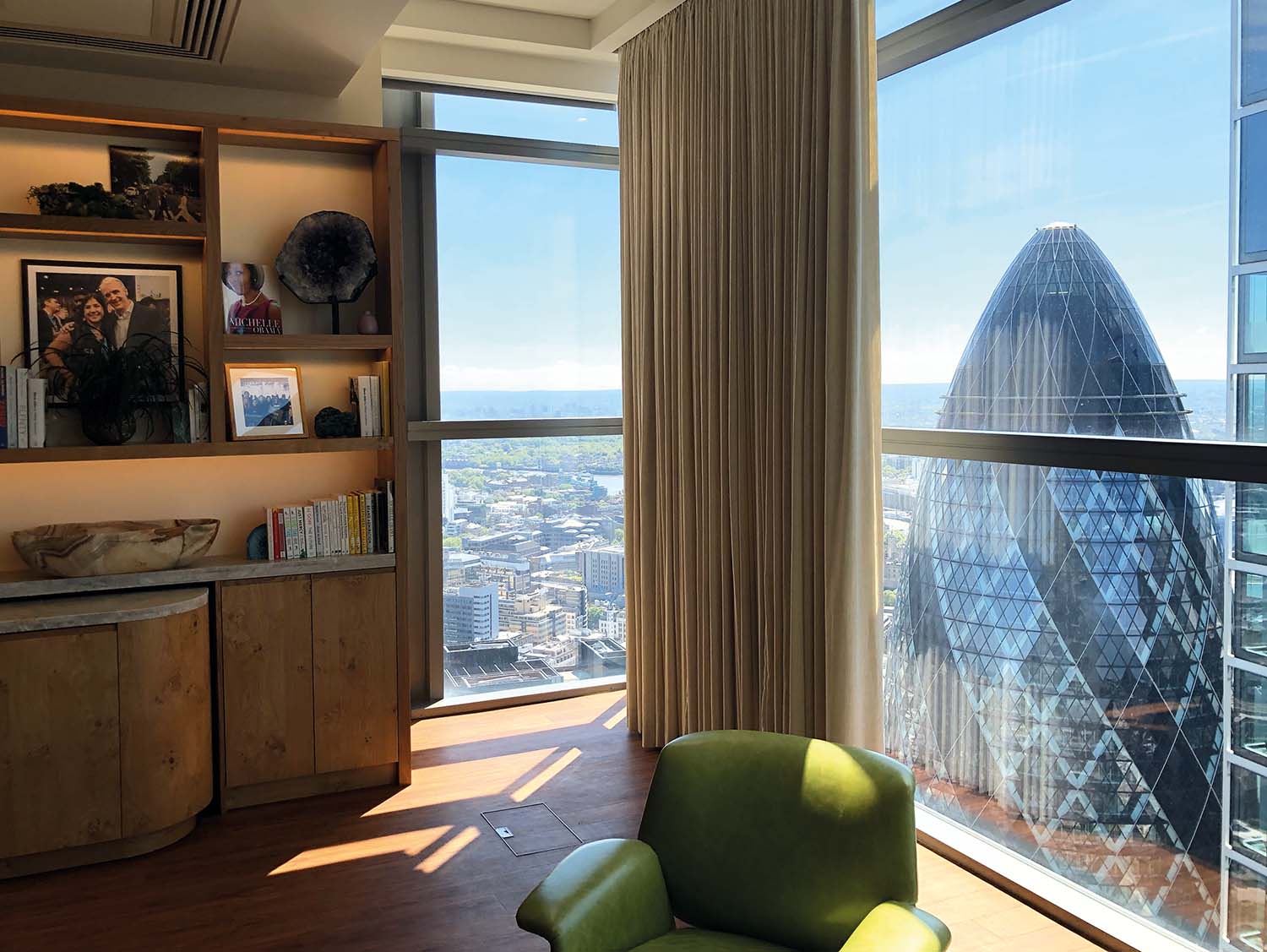
And combining this with a full-time job. How did you find the stamina to keep pressing forward with all of this?
I think there are two things. First, I t hink you need to really tap into the internal strength and passion. And I think that people who go to CEMS schools have that – that capacity to go to different universities in different countries, doing internships in international companies, use different languages, exploring different cultures. And this is a lot to ask when you are very young; it’s about stepping out of your comfort zone and experiencing things that if they don’t break you will make you stronger. So, I think the CEMS profile is very much a can-do, proactive, experimental profile in itself. As CEMSies, we build that inner fortitude of learning to survive and manage our lives when we are young.
And the other thing is finding the support of a mentor. In my case this was my manager at Salesforce who never saw my desire for change as something negative. She provided encouragement when I had setbacks and always helped me see the bigger picture. As a great mentor, she opened my eyes to new avenues I could pursue. I really recommend getting a mentor to anyone who is looking to venture into new territories.
Being upfront and transparent with your manager and team mates must have helped build that support?
Yes, but I think it’s important to stress that first you need to be transparent with yourself. And to remember that you are important. You need to put what other people want from you and for you to one side, and ask yourself what you want. Once you have established that kind of transparency for yourself, it becomes so much easier to be transparent with other people and to ask for the help that you need.
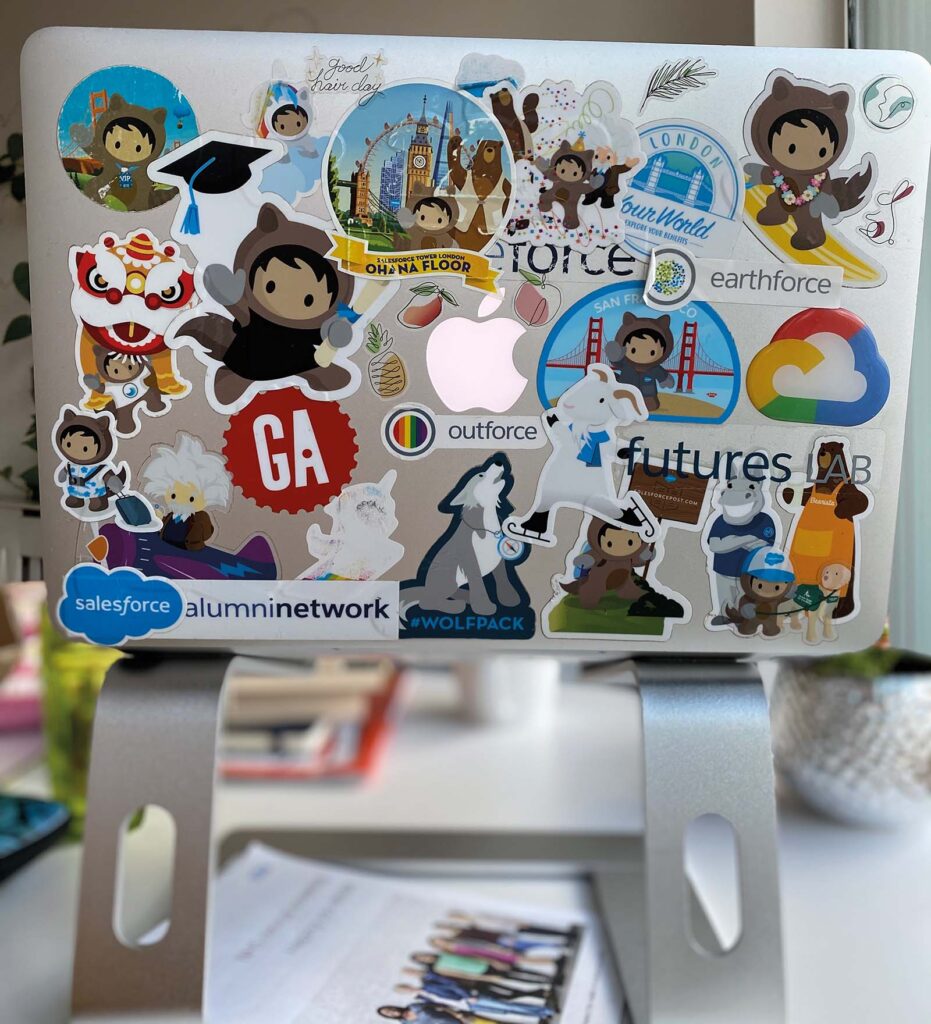
Justyna, you have done it. You’ve made a leap from one type of role into a completely new field and you’re enjoying success as a UX designer. You enjoy a lot of responsibility with GSK, you have built a strong portfolio and you speak and lecture at top institutions, including your alma mater, LSE. What are the secrets to your success?
I think success is built on passion and hard work. The two things go hand in hand. You need to find and connect with the things that inspire you and then you need to put in the time and the effort. And you need to understand that things don’t happen overnight. It took me a long time to find an avenue for my creative passion. Years even. Learning, upskilling and building my competence was hard work but it felt short in fact, in the scale of things.
need to find and connect with the things that inspire you and then you need to put in the time and the effort. And you need to understand that things don’t happen overnight. It took me a long time to find an avenue for my creative passion. Years even. Learning, upskilling and building my competence was hard work but it felt short in fact, in the scale of things.
None of this happens without failure. The key is to stay true to your passion. Continue to believe in yourself and the results will follow.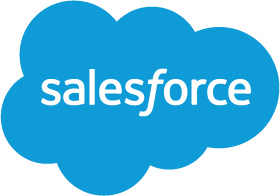
And then there’s the power of the network. I remain very close to the Salesforce UX team even in my current role, because of the strength it brings me: the interchange of ideas, knowledge and perspectives, and a chance to bring the very best from very different sectors and organisations.
So, have you found your ikigai?
Ha! Right now, absolutely. Who knows if further down the line I will move into something new – maybe even book writing! But design will always be part of my life, whether it’s UX or product design. I keep a very open mind. And that’s key.
Is that advice you would share with other CEMS graduates: keep an open mind?
I think it’s essential to listen to yourself, regardless of the pressure from others or from your environment. And if you don’t know what it is that you want yet, don’t be afraid to experiment and try different things. It’s like I said earlier: winners are quitters. They quit quickly and they fail quickly, and in doing so, they find the things that matter most to them.